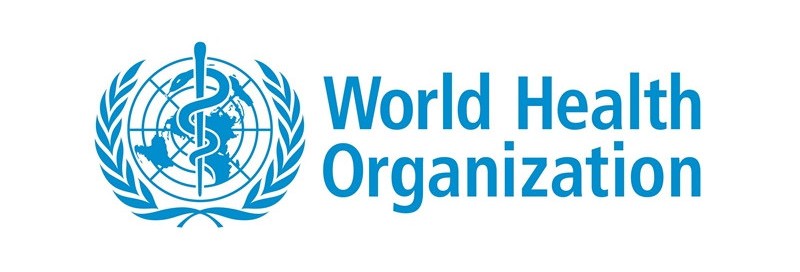According to Center for Disease Control and Prevention (CDC), American health care has achieved tremendous progress in treating diseases and chronic conditions in recent years:

- In 2009, the CDC’s National Center for Chronic Disease Prevention and Health Promotion pointed out the wonderful progress that had been made in treating the most prevalent health threats our country faces
-
- Over the last 20 years, the death rate for coronary heart disease and stroke “declined 20.8% and 24.4%, respectively.”
- The development of cancer prevention techniques, early detection interventions, and improved cancer treatments has contributed to “tremendous progress” in treating cancer. For example, from 1998 to 2005, screening efforts have lowered the breast cancer death rate by 2% per year.
- Due to increased public health initiatives and improved quality of care, diabetes-related end-stage renal disease has “declined 21% from 1997 to 2002.” The incidence of diabetes-related visual impairment has also decreased from 1997 to 2005 by 24%.
- Life-changing interventions (like exercise) and public outreach have decreased the pain of arthritis and increased the quality of life for those living with the condition.
- The tide of rising obesity in America seems to be turning–after 25 years of steadily increasing obesity rates, the CDC now notes that the rates of obesity among children and adults seem to be leveling out.
- The CDC has also demonstrated that that regular and systematic administration of childhood vaccinations “prevents approximately 42,000 deaths and 20 million cases of disease.”
However, that progress has not been enough to solve these health issues. Many Americans still suffer from these ailments:
- Heart disease is the leading cause of death for Americans. Stroke is the third leading cause of death.
- Cancer is the second leading cause of death.
- Diabetes is still the leading cause of kidney failure, nontraumatic lower-extremity amputations, and blindness in the adult population. 24 million Americans have diabetes, and 57 million adults have prediabetes.
- Arthritis is still the nations most common cause of disability and affects 20% of the adult population.
- Despite stagnant rates of obesity, 1 in 3 American adults is considered obese.
Furthermore, the CDC presented data that shows how 86% of the nation’s $2.7 trillion of annual health care expenditures go towards treating chronic and mental health conditions, a figure which can be reduced.
Despite our progress, we find ourselves in a severe health care crisis.
The World Health Organization (WHO), which studies and tracks the quality of health care systems all around the world, had this to say about American health care:
- The U.S. is the 72nd healthiest country in the world – The World Health Organization (WHO), in 2000, ranked the U.S. health care system as first in responsiveness, 37th in overall performance, and 72nd by overall level of health, out of 191 nations included in the study.
- Despite being ranked the 72nd healthiest country, the U.S. spends the most on its health care system, relative to its gross domestic product, than any other country.

Multiple other agencies and foundations have independently found that the American health care system needs substantial improvement:
- According to the World Factbook, which is supported by the Central Intelligence Agency and “provides information on the history, people, government, economy, geography, communications, transportation, military, and transnational issues for 267 world entities.” The World Factbook notes that the United States ranks 43rd in life expectancy.
- According to a 2013 study commissioned by the National Institutes of Health (NIH) which examined health among the 17 highest-income countries, the U.S. has remarkably worse health than its peers. Specifically, the U.S. fares far worse than its peers in nine crucial areas–infant mortality and low birth weight, injuries and homicides, adolescent pregnancy and sexually transmitted infections, HIV and AIDS, drug-related deaths, obesity and diabetes, heart disease, chronic lung disease, and disability.
- A 2014 study from The Commonwealth Fund found that the US health care system is the most expensive system in the world, despite its many flaws.
- In a 2015 paper compiled by the Commonwealth Fund, the data showed that the U.S. spent a total 17.1% of its total GDP on health care costs. That is 50% more than the second-highest spending country spent on its health care. That country was France, which paid only 11.6% of its total GDP towards health care.
- Health Insurance Premiums have doubled since 2000.
- According to the Centers for Medicare and Medicaid Services, the annual per person health care spending for adults aged 65 and over was $18,424, as of 2010. Health Insurance Premiums have doubled since 2000.


These flaws have real-world, long-term effects on the health of the American people:
- In a study compiled by the Mayo Clinic, 70% of Americans have taken at least one prescription medication within the past year.
- Our culture of pills is killing Americans. The 2017 World Drug Report, compiled by the United Nations Office on Drugs and Crime and represented here, found that, in 2015, more Americans died from opioid drug overdoses than any other population. In fact, more than 64,000 Americans died of opioid drug overdose in 2016 alone. President Trump announced that America is in a state of National Emergency on October 26, 2017.
- The side effects of medications are creating many more health problems, such as dementia, cancer, and heart disease. Some painkillers have been shown to cause heart problems. Acid reflux drugs may cause osteoporosis and anemia. Hormone replacement therapy has been shown to increase cancer risk.
- In March 2015, the Journal of the American Medical Association published a study reporting that anticholinergic medications, such as certain antihistamines, antidepressants, overactive bladder medications, drugs for Parkinson’s Disease, and even some sleep medications may increase risk of dementia. The report also found, of 3434 male and female volunteers aged 65 years and older, 797 participants who frequently took those medications developed dementia within seven years of the study.
Our current health care system is in dire need of improvement. While we’ve come a long way, we need to reorient ourselves and find new ways to treat our health problems without causing new ones.
At weMED, we do precisely that.
